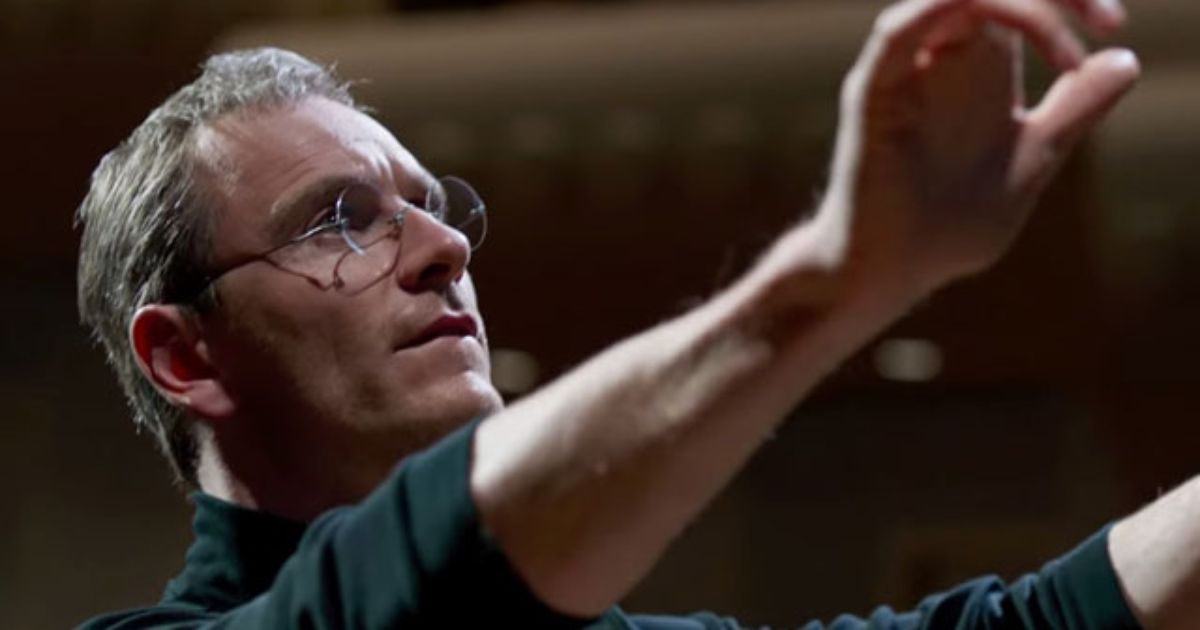
Steve Jobs (2015) / Drama
MPAA Rated: R for language
Running Time: 122 min.Cast: Michael Fassbender, Kate Winslet, Seth Rogen, Jeff Daniels, Michael Stuhlbarg, Katherine Waterston
Director: Danny Boyle
Screenplay: Aaron Sorkin (portions taken from the Walter Isaacson book)
Review published October 24, 2015
 There are two things most people know about
Steve Jobs: he was a genius, and he was an a-hole. Since his
death in 2011, there have been a number of projects over the years,
including the prior biopic Jobs and the Alex Gibney
documentary Steve Jobs: The Man in the Machine, that have
wrestled with how we're ultimately supposed to feel about a man who is
so good at what he does for a living, yet so uninterested in trying to
be good at just about anything else. However, much of what we
know about the very private Steve Jobs comes almost wholly from his
public appearances that he could shape himself, so by giving us an
interpretation of what the man may have been like behind the scenes,
literally behind the scenes of those very public appearances, the
filmmakers seek to give us a look at Jobs that has never been seen
before, perhaps even by those who were there.
There are two things most people know about
Steve Jobs: he was a genius, and he was an a-hole. Since his
death in 2011, there have been a number of projects over the years,
including the prior biopic Jobs and the Alex Gibney
documentary Steve Jobs: The Man in the Machine, that have
wrestled with how we're ultimately supposed to feel about a man who is
so good at what he does for a living, yet so uninterested in trying to
be good at just about anything else. However, much of what we
know about the very private Steve Jobs comes almost wholly from his
public appearances that he could shape himself, so by giving us an
interpretation of what the man may have been like behind the scenes,
literally behind the scenes of those very public appearances, the
filmmakers seek to give us a look at Jobs that has never been seen
before, perhaps even by those who were there.